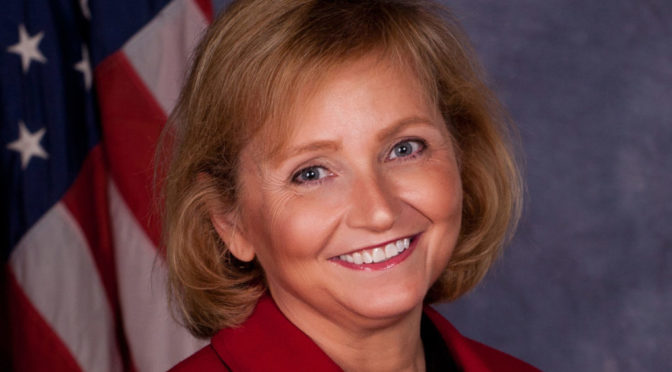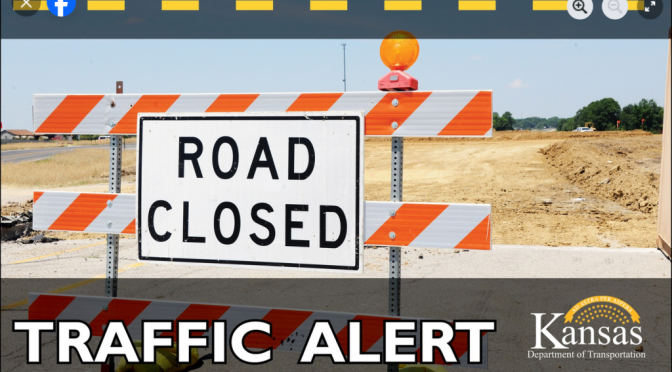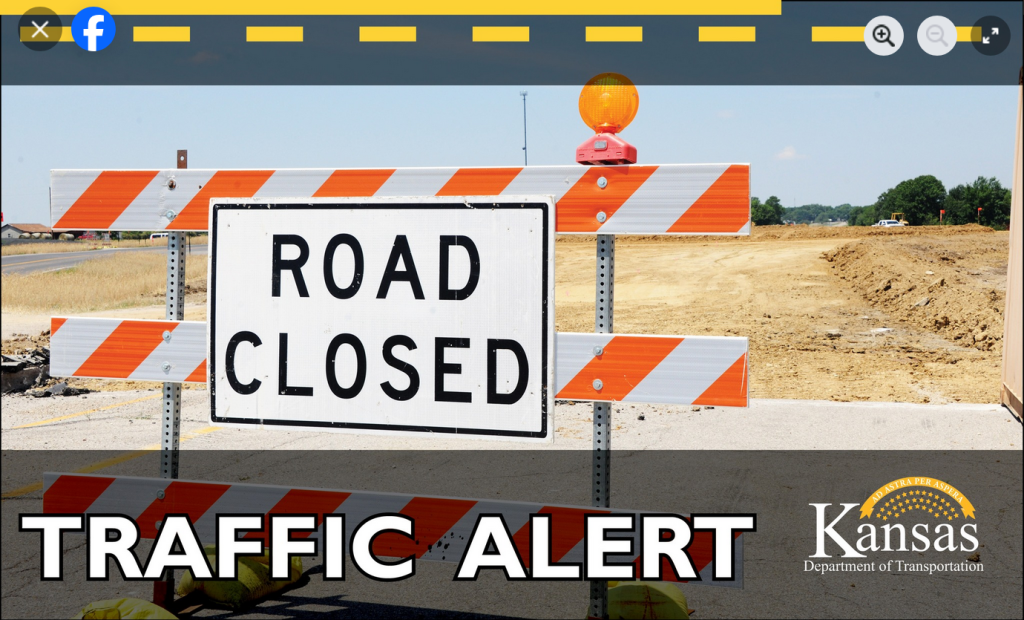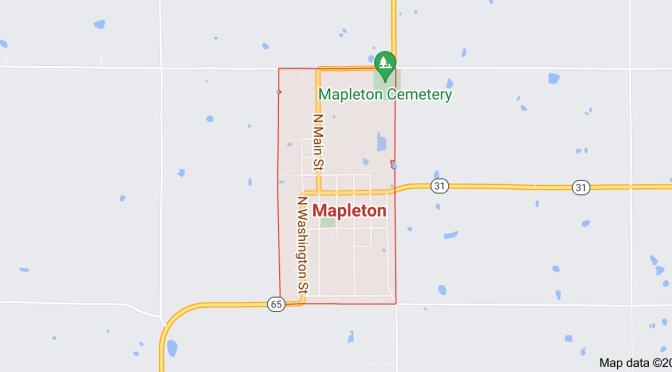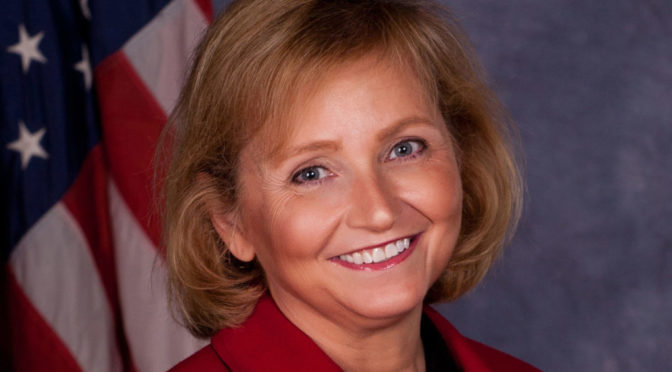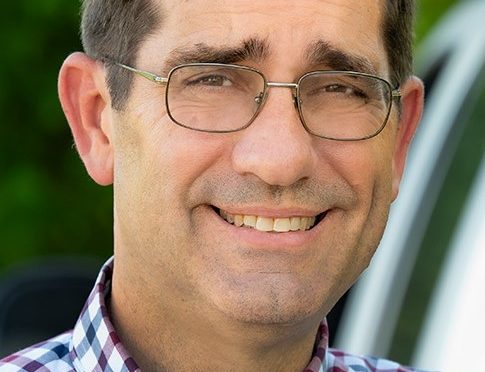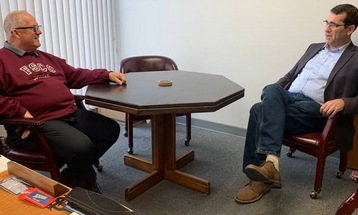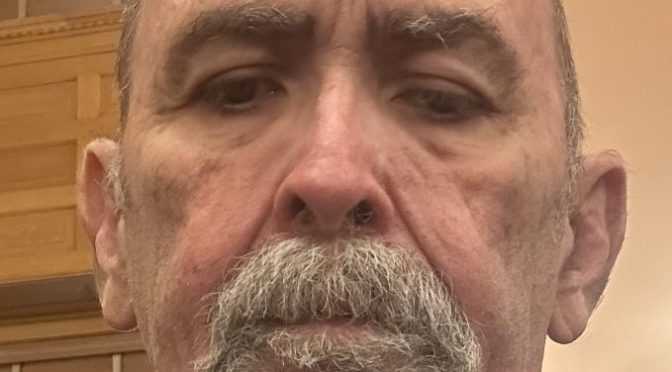|
Category Archives: Kansas
KS New Program To Help Inmates Re-enter Society
|
KS Total January Tax Collections Are $988.2 Million
|
Legislative Update by State Senator Caryn Tyson
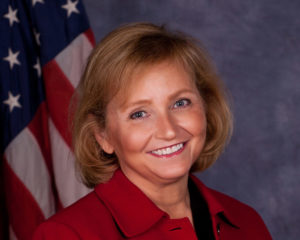
Bridge on Bourbon County road to be replaced
Starting the week of Feb. 2, a portion of 60th Street in western Bourbon County will be closed for a bridge replacement project, according to the Kansas Department of Transportation.
The project to replace the bridge 5.9 miles south of Uniontown and 1 mile west of K-3 will start Monday, Feb. 2, conditions permitting. This section of the gravel road will be closed throughout the project, which is expected to be completed by fall, conditions permitting.
The new bridge over the tributary of Hinton Creek will be 80 feet long and 24 feet wide. B&B Bridge Company LLC, of St. Paul, is the contractor for the $701,404.10 project.
Governor Laura Kelly and KDOT Secretary Calvin Reed announced $42.3 million in funding for this and 34 other bridge projects through the KDOT Off-System Bridge and the Kansas Local Bridge Improvement programs. The programs target improvements to city and county bridges not on the state highway system and in need of replacement and repair.
KDOT urges motorists to stay alert and follow posted signs in all work zones. Check KDOT’s updated traveler information website, www.Kandrive.gov, for more highway condition and construction details. For updates on construction projects in southeast Kansas, visit ksdot.gov/southeastnews.
Kansas 165th Birthday is Today
|
City of Mapleton Receives Community Block Development Grant for $202,600
Commerce Awards Over $4 Million in CDBG Grants to Kansas Communities
TOPEKA – Lieutenant Governor and Secretary of Commerce David Toland today announced that more than $4.1 million in Community Development Block Grant (CDBG) funding has been awarded for 12 projects across Kansas. The investments will strengthen infrastructure, housing and economic opportunities in rural and low- to moderate-income communities.
“Our small and rural communities are rich with talent, aspirations and opportunity,” Lieutenant Governor and Secretary of Commerce David Toland said. “Investing in these projects through the CDBG program gives these communities the tools, resources, support and funding they need to address specific challenges and increase their ability to attract more visitors and residents.”
The 12 awardees will receive a total of $4,125,316 in federal funds, which was matched by $9,158,623 in local investments. The result was a combined total of $12,283,939 to be used for public improvements in communities across the state.
Projects awarded in this round:
- City of Arkansas, $628,728 – Adding new playground equipment at Wilson Park
- City of Burden, $300,000 – Rehabilitating nine homes and demolishing four dilapidated structures to address unsafe housing conditions
- City of Centralia, $650,000 – Improving the sanitary sewer system, including manhole rehabilitation and lift station upgrades
- City of Clifton, $160,000 – Installing a new playground surfacing and equipment
- City of Holyrood, $300,000 – Rehabilitating eight homes and demolishing three dilapidated structures through a citywide housing program
- City of Lyons, $650,000 – Upgrading the wastewater treatment plant, including monitoring system, lift stations, headworks, grit system, process basin improvements, motor center, press system, and electrical and site upgrades
- City of Mapleton, $202,600 – Adding a 1,200-foot ADA walking path, parking area, ballfield lighting, fencing, bleachers, dugouts, bathroom improvements and new park amenities at Mapleton Park
- City of Moscow, $51,525 – Installing an above-ground storm shelter in City Park that serves up to 50 people
- City of Mulvane, $181,205 – Resolving ADA barriers in downtown business districts along Main Street and East Mulvane Street
- City of Paola, $300,000 – Renovating a downtown building at 110 E. Peoria St., converting a former church into a wedding venue with exterior improvements and roof replacement
- Dickinson County (Abilene), $298,000 – Improving exterior façade to the historic “post office block” at 109 NW 3rd Street, supporting new commercial rental space
- Doniphan County, $403,258 – Improving courthouse accessibility, including new ADA-compliant ramp
“Through programs and funding opportunities like CDBG, we’re able to grow our support for small communities, creating sustainable solutions and growth in rural parts of Kansas,” Assistant Secretary of Quality Places Matt Godinez said. “These awards are more than just providing financial resources to communities — it’s about making these places attractive, appealing and places where people are excited to live, work and play.”
The funded projects are tangible results of how CDBG dollars help communities support economic development and develop spaces that improve the lives of Kansans.
To learn more about the Community Development Block Grant program and view awardees, visit here.
About the Kansas CDBG Program:
The Kansas Community Development Block Grant program provides funding to cities and counties to improve the lives of low- and moderate-income Kansans. Administered by the Kansas Department of Commerce, the program supports projects in housing, community facilities, and economic development.
About the Kansas Department of Commerce:
As the state’s lead economic development agency, the Kansas Department of Commerce strives to empower individuals, businesses and communities to achieve prosperity in Kansas. Commerce accomplishes its mission by developing relationships with corporations, site location consultants and stakeholders in Kansas, the nation and world. Our strong partnerships allow us to help create an environment for existing Kansas businesses to grow and foster an innovative, competitive landscape for new businesses. Through Commerce’s project successes, Kansas was awarded Area Development Magazine’s prestigious Gold Shovel award in 2021, 2022, 2023 and 2024, and was awarded the 2021 and 2022 Governor’s Cup by Site Selection Magazine.
##
KS Public Broadcasting Grant Announced
|
Rural Kansas Downtown Revive and Thrive Grants Announced
|
Legislative Update by State Senator Caryn Tyson

January 23, 2026
Property Tax Relief – The CAP Assessment Protection (CAP) Amendment (SCR 1616) has cleared the Senate Tax Committee, moving us closer to protecting Kansans from runaway property tax increases. Currently, there’s no cap on how much a property’s assessed value can rise. It has been reported in the past five years that Kansas saw a 45-52% surge in residential valuations statewide, with an average 26-32% jump in just the last three years. Linn County led the state with a 66% increase. (Thankfully the County has remained neutral since 2021, but other taxing authorities like the schools took all the increase). The CAP Amendment would limit annual assessment growth to 3% or less, using 2022 as the baseline and the limit stays in place even after a sale of the property. County appraisals remain unchanged; the taxable value becomes the lower of the unrestricted assessment or the capped value. By capping the biggest driver of your tax bill—the assessed value—the amendment shields homeowners from inflation-driven tax spikes and addresses the problem of taxes on unrealized gains. It’s a common-sense safeguard to keep Kansans in their homes.
Kansas City Chiefs Stadium Deal was discussed in recent House and Senate committee hearings because legislation creating a stadium authority must pass for the project to advance. Hall talk suggests over 100 lobbyists are pushing it. Committee proponents highlighted the revenue the project would generate for the state, but a Wyandotte County representative commented that similar promises for past STAR bond projects fell short. It’s a public-private partnership with approximately 60% public funding (mainly via STAR bonds – sales taxes in the affected area would be used to pay off the bonds). These deals often let private businesses tap taxpayer dollars for their projects.
Committee work is the focus at the beginning of any session. This is the stage where a bill, such as the CAP Amendment, undergoes its most rigorous scrutiny before ever reaching the floor of a chamber for a full vote. Committees are where legislators review language of a bill and hear testimony from conferees. During this phase a bill can be amended, refined, or even completely rewritten when the committee “works” a bill. Because committees act as gatekeepers, a bill’s passage out of a committee can be a significant milestone; it signals that the proposal has enough merit and support to be considered by the entire legislative body of the Senate or the House, whichever chamber the bill is currently located.
It is an honor and a privilege to serve as your 12th District State Senator.
Caryn Tyson
Kansas Senate, District 12
U.S. Congressman Derek Schmidt Newsletter
|
|
|
|
|
|
Ken Collins, Kansas State Representative-Second District
Thoughts From Under the Dome
Week two of the 2026 Kansas Legislative Session is now in the books and there is a great deal of talk about property tax relief right now and how it can be achieved. A majority of what a property owner pays goes to local governments and school districts so that shifts the focus on possibly limiting valuation increases and there are several proposals floating around at this point so all that I can say right now is to stay tuned.
House Bill 2412 also known as Benny’s Bill is my main focus this year when it comes to legislation that I am sponsoring. Benny’s Bill increases the severity levels for crimes relating to endangering a child under the age of six changing what is now a misdemeanor into a felony. The House Judiciary Committee held a hearing on the bill and while they haven’t voted on it yet as of my writing of this the response that I have received from committee members has been positive. I was greatly impressed by Shelby Cannon and Lisa Eastwood the mother and grandmother of Benny Cannon the child who suffers as a result of day care negligence and was the inspiration for HB 2412. Jordan Chessher from Project Heaven in Wichita also testified. His organization advocates for stronger laws to protect abused and neglected children. His input was very helpful as well.
On a final note I am a cosponsor of House Bill 2473 along with Representatives Brett Fairchild, Stephanie Sawyer-Clayton and others. This bill would eliminate the parental consent exception to the legal age to marry in Kansas of 18. Times have changed and I believe that the once common practice of child marriage never turns out well in this day and age.
That’s it for now. I’m wishing the best for everyone and if there are any questions or concerns please don’t hesitate to reach out. Ad Astra Per Aspera.

